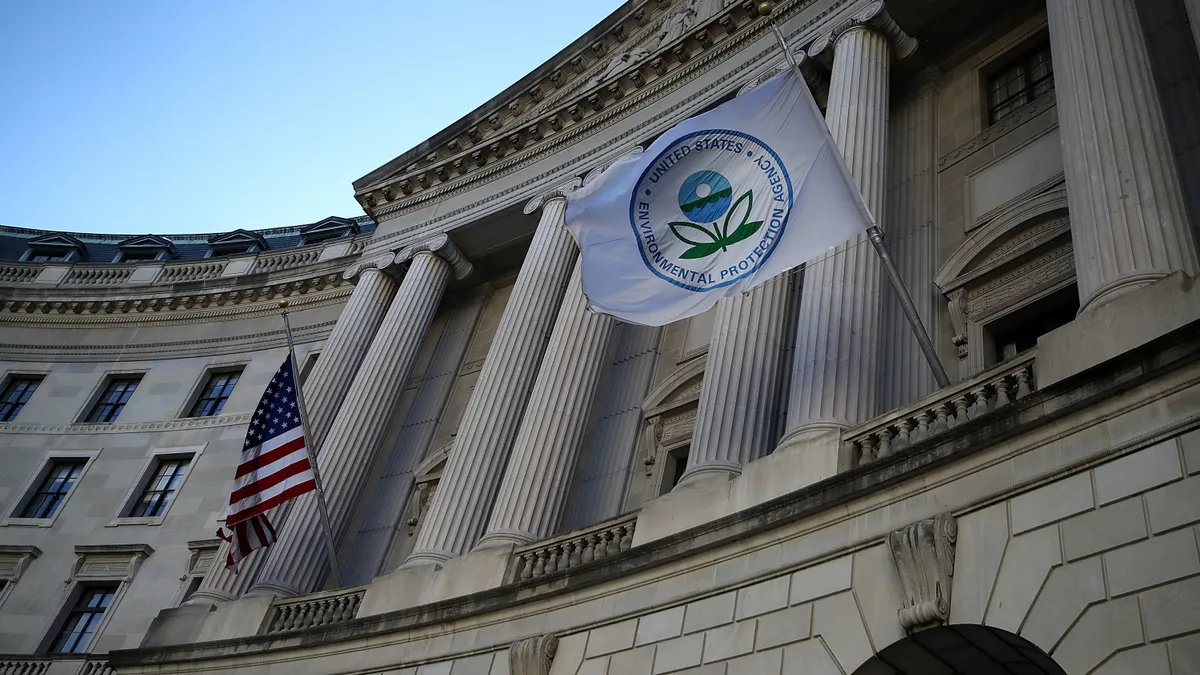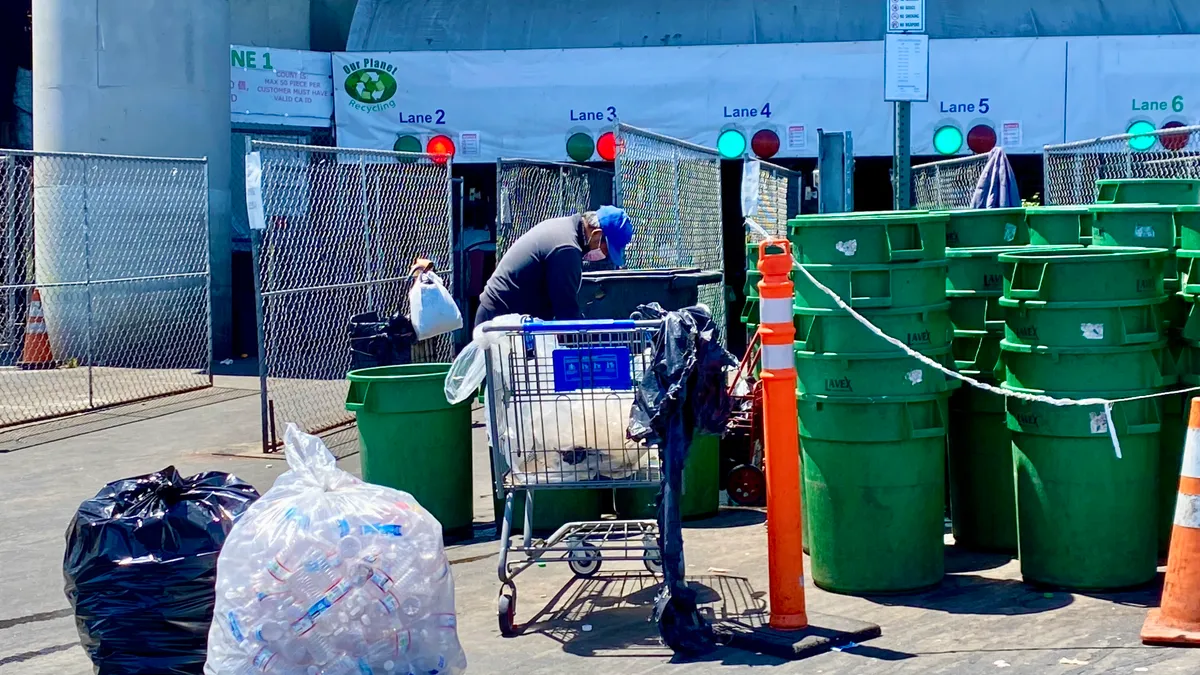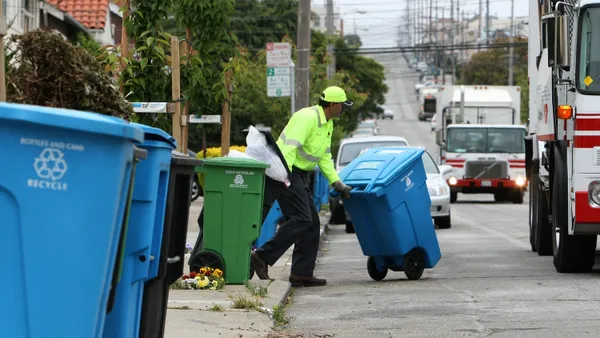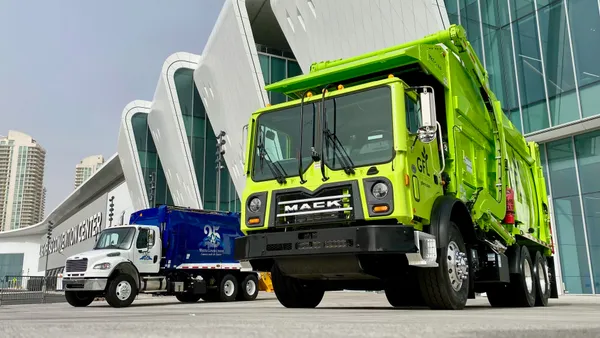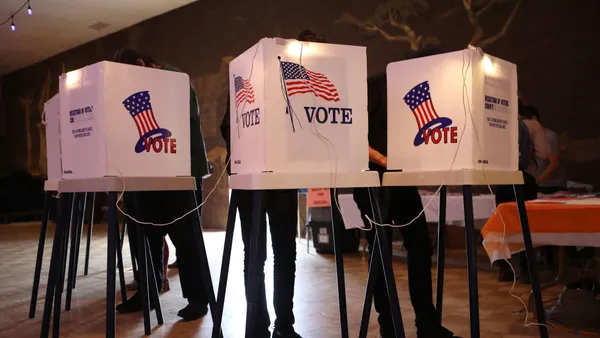Dive Brief:
- Two months after Seattle Public Utilities instituted a dumpster ban in the city's Pike/Pine retail corridor, some local business owners say their waste and recycling costs have gone up, as reported by the Capitol Hill Times.
- Businesses must now purchase bags for waste and recycling that are collected multiple times a day. Carts are still used for glass and food waste. Though one venue says monthly costs have increased by 200% and could add up to an additional $30,000 per year because they sell a lot of canned drinks which take up space in the bags.
- The intention behind removing these dumpsters was to improve safety in the area and prevent people from using drugs or sleeping between them. Other local business owners who don't have large volumes of waste have said they welcome the change.
Dive Insight:
SPU initially formed a site review program last summer based on recommendations from the mayor's office that came out after an increase in anti-LGBTQ hate crimes and incidents. The Capitol Hill Chamber of Commerce also identified dumpster removal as a recent priority and businesses in other areas with a similar policy haven't reported a spike in their waste collection costs. Yet some question whether this change has truly improved safety or appearances, noting that carts and bags still fill the sidewalk on many nights.
Managing waste at commercial establishments that don't have alleys — or access to dumpsters — throughout the day is a challenge in many cities. In some cases, businesses aren't allowed to put their bags on the sidewalk until a certain time and have to get creative by storing them under basement staircases or in special walk-in refrigerators. These constraints can require businesses to pay for multiple collections per day from private haulers, which has been a main point of contention in discussions about standardized franchise collection systems.
Because it's too soon to know whether safety has improved in the area since this was implemented, the city is unlikely to change course and will have to work with business owners in the meantime. It's notable that amid this shift the system of using carts for organic waste has remained the same. Altering the commercial organics recycling mandate in any way would not be helpful in the city's efforts to reach its high diversion rate goal.





